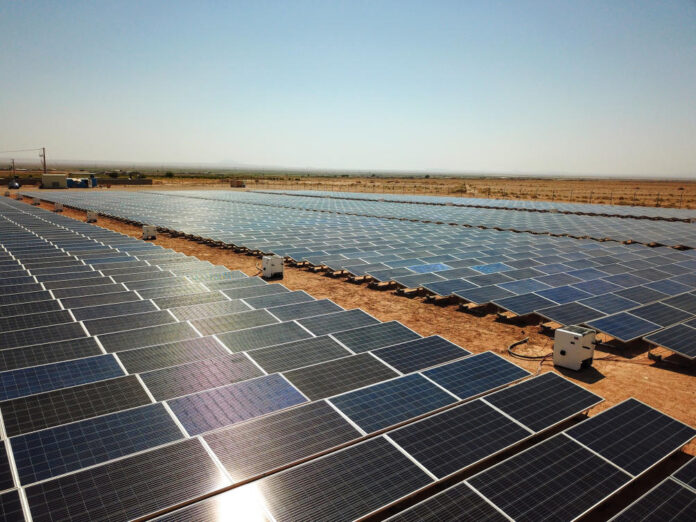BAGHDAD: Power-starved Iraq on Thursday signed a deal with a Norwegian-led consortium to build two solar power plants, officials said, a day after inking a similar agreement with the UAE.
War-scarred Iraq is the second-largest producer in the Organization of the Petroleum Exporting Countries (OPEC), but the country faces a severe energy crisis and chronic power cuts that feed social discontent.
Thursday’s agreement with the consortium led by Scatec is for the construction of two solar plants south of Baghdad with a total capacity of 525 megawatts (MW), the oil ministry said.
The project will cost around $500 million, with one plant to be built in Karbala and the other in Babel, it said.
“It is a step toward the development of durable energy,” Oil Minister Ihssan Ismail told a news conference.
Abdelaziz Atribi, Scatec’s vice president for the Middle East and North Africa, told AFP construction should begin “as quickly as possible” and take about a year.
The consortium also includes Egypt’s Orascom Construction and Iraq’s private Albilal Group.
Iraq on Wednesday inked an agreement with UAE-based renewable energy company Masdar to build five solar power plants with a total capacity of 1,000 MW.
They are part of deals with which Iraq aims to add 7,500 MW to its grid by 2023, Suha Daoud Najjar who heads the state’s investment authority, told AFP.
Iraq’s crude accounts for more than 90 percent of Baghdad’s revenues, but decades of conflict, poor maintenance and rampant corruption have battered its energy sector.
Iraq currently produces 16,000 MW of electricity, far short of the estimated 24,000-MW needs of its fast-growing population which the UN says is expected to double by 2050.
Iraq has grown dependent on gas and electricity imports from neighboring Iran, under exemptions to US sanctions on Tehran.
In September, Iraq signed a multi-billion-dollar contract with France’s TotalEnergies on projects including the construction of a 1,000-MW solar plant to supply the southern region of Basra.

